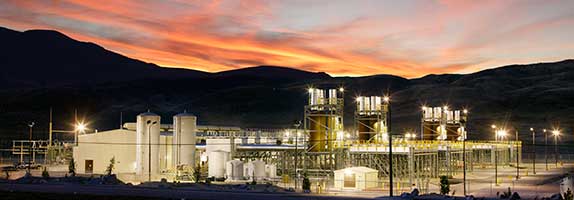

About Marine
The technology group Wärtsilä, a leading provider of Exhaust Gas Cleaning (EGC) systems for the marine industry, refers its customers to a recent report from CE Delft, an independent research and consultancy organisation, regarding the climate impact of EGCs. The study compares the results to the use of low-sulphur marine fuels and is made from a well-to-wake perspective in order to achieve an accurate comparison.
The report concludes that the environmental impact of EGCs will be less than that of low-sulphur marine fuel. It notes that CO2 emissions associated with producing and installing an EGC system are small compared to those generated when operating the system. The CO2 emissions are mainly related to the energy demand of the system’s pumps, which typically result in a total increase in CO2 emissions of between 1.5 and 3 percent.
By contrast, with de-sulphurised fuels the overall CO2 footprint increase is a result of the refining processes. Theoretical calculations range from an increase in CO2 emissions of 1 percent to as much as 25 percent when removing the sulphur content of the fuel. The report states that while the lower figure is not in fact physically possible, the higher percentage increase is applicable only to a quality of fuel that is too high for marine applications. The conclusion, therefore, is that the CO2 emissions associated with the production of low-sulphur marine fuels will be between these extreme values, as illustrated in the attached image.
“This study provides a comprehensive overview of the climate impacts of different options to reduce sulphur emissions. It shows that in many cases, the carbon footprint of using a scrubber is lower than low-sulphur fuels,” said Jasper Faber, Project Manager at CE Delft.
“Wärtsilä has consistently demonstrated its commitment to minimising the marine sector’s carbon footprint. This shows not only in our products and systems, but also in our manufacturing and production processes. We are delighted that this independent report confirms that when taking all things into consideration, our EGCs create less CO2 emissions than the use of sulphur-compliant fuel,” commented Jan Othman, Vice President, Exhaust Treatment.
Research has indicated that greenhouse gas (GHG) emissions from shipping have increased by more than 10 percent in the last five years. These emissions are projected to increase by up to 50 percent by 2050, which means that if the International Maritime Organization’s goal to significantly lower the industry’s GHG emissions is to be achieved, scrutiny of all aspects of shipping is necessary. Reducing CO2 emissions whilst complying with the IMO’s MARPOL Annex VI is one such important aspect.
Media contact for more information on this release:
Heidi Paulsrud
Director EGC Sales and Marketing
Wärtsilä Marine Systems
Heidi.paulsrud@wartsila.com
Tel: +47 90 60 50 55
Image captions:
All Wärtsilä releases are available at https://www.wartsila.com/media/news-releases and at http://news.cision.com/wartsila-corporation where also the images can be downloaded.
Wärtsilä Marine Systems in brief:
Wärtsilä Marine Systems offers high-quality products, solutions, and lifecycle services related to the gas value chain, exhaust treatment applications, seals & bearings, shaftline repair services, underwater services, and marine electrical integrations. Our aim is to provide the latest and most efficient solutions in line with Wärtsilä’s Smart Marine Ecosystem vision for a safer, better, and more sustainable future for our customers.
www.wartsila.com/marine
Wärtsilä in brief:
Wärtsilä is a global leader in smart technologies and complete lifecycle solutions for the marine and energy markets. By emphasising sustainable innovation, total efficiency and data analytics, Wärtsilä maximises the environmental and economic performance of the vessels and power plants of its customers. In 2019, Wärtsilä’s net sales totalled EUR 5.2 billion with approximately 19,000 employees. The company has operations in over 200 locations in more than 80 countries around the world. Wärtsilä is listed on Nasdaq Helsinki.
www.wartsila.com